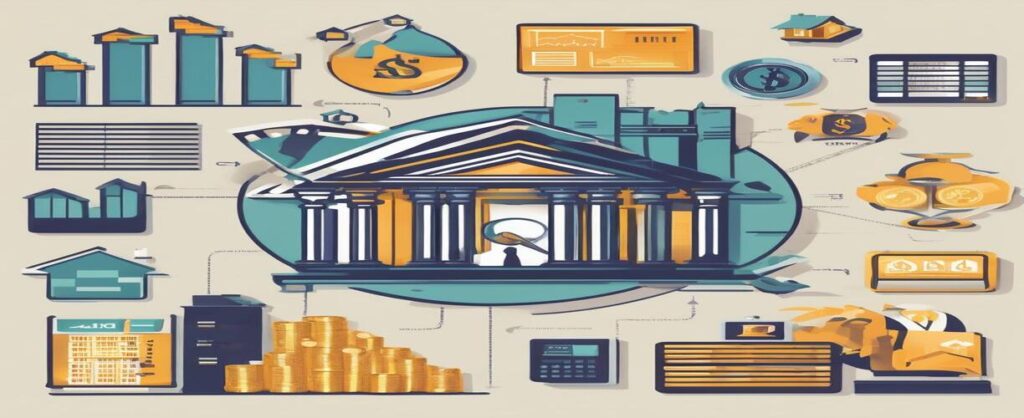Understanding Debt Consolidation: A Comprehensive Guide

## Introduction
Debt consolidation is a financial strategy that combines multiple debts into a single loan or payment plan, making it easier for individuals to manage their financial obligations. This approach can simplify repayment, reduce interest rates, and help individuals regain control of their finances. In this article, we’ll explore what debt consolidation is, how it works, its benefits and drawbacks, and the different methods available.
## What is Debt Consolidation?
Debt consolidation involves taking out a new loan to pay off multiple existing debts, effectively merging them into one. This can include credit card debts, personal loans, medical bills, and other types of unsecured debt. The goal is to simplify payments by having only one monthly payment instead of several, ideally with a lower overall interest rate.
## How Debt Consolidation Works
There are various methods for consolidating debt, each with its own process:
### 1. **Debt Consolidation Loans**
– **Personal Loans**: Borrowers can take out a personal loan from a bank, credit union, or online lender to pay off their existing debts. This often results in a lower interest rate compared to credit cards.
– **Secured Loans**: These loans use collateral (such as a home or vehicle) to secure the debt, which can lead to better interest rates but carries the risk of losing the asset if payments are missed.
### 2. **Balance Transfer Credit Cards**
– Many credit card companies offer promotional low or zero-interest rates for balance transfers. Individuals can transfer balances from high-interest credit cards to a new card to consolidate debts. It’s important to pay off the balance before the promotional period ends to avoid higher interest rates.
### 3. **Debt Management Plans**
– Non-profit credit counseling agencies can create a debt management plan (DMP) for individuals. Under a DMP, the agency negotiates with creditors to lower interest rates and develop a repayment schedule. The individual makes a single monthly payment to the agency, which then pays the creditors.
### 4. **Home Equity Loans or Lines of Credit**
– Homeowners can tap into their home equity to consolidate debt. However, this method increases the risk of foreclosure if payments are not made, as the home serves as collateral.
## Benefits of Debt Consolidation
– **Simplified Payments**: One monthly payment makes budgeting and tracking easier.
– **Lower Interest Rates**: Debt consolidation often results in reduced interest rates, which can save money on total repayment costs.
– **Improved Credit Score**: Reducing credit card balances can improve credit utilization ratio, potentially boosting credit scores.
– **Predictable Payment Terms**: Consolidation loans typically have fixed interest rates and payment schedules, enhancing financial planning.
## Drawbacks of Debt Consolidation
– **Fees and Costs**: Some loans or balance transfer cards may come with fees, and individuals may end up paying more over time if terms are not favorable.
– **Risk of Accumulating More Debt**: If not careful, individuals may continue to rack up debt on credit cards after consolidation, making their financial situation worse.
– **Impact on Credit Score**: While debt consolidation can improve credit utilization, taking out new loans can temporarily lower credit scores due to hard inquiries.
## Is Debt Consolidation Right for You?
Debt consolidation may be a beneficial solution if you are:
– Struggling with multiple high-interest debts.
– Seeking a structured repayment plan.
– Ready to commit to changing spending habits to avoid future debt.
Before proceeding with debt consolidation, it’s crucial to evaluate your financial situation carefully. Consider the total cost of options, interest rates, terms, and potential fees. Consulting a financial advisor or credit counselor can help clarify the best approach.
## Conclusion
Debt consolidation can be an effective strategy for managing multiple debts and regaining control of your finances. By understanding how it works and weighing the benefits and drawbacks, individuals can make informed decisions about whether this approach aligns with their financial goals. Responsible management and a commitment to avoid accumulating more debt are essential for achieving long-term financial well-being.
DEBT CONSOLIDATION TERMINOLOGY

Understanding the terminology associated with debt consolidation is important for navigating the process effectively. Here’s a glossary of key terms related to debt consolidation:
### 1. **Debt Consolidation**
– The process of combining multiple debts into a single loan or payment plan, often with the goal of reducing interest rates, simplifying monthly payments, and improving financial management.
### 2. **Consolidation Loan**
– A loan specifically taken out to pay off multiple debts. It allows borrowers to combine all their debts into one loan with a potentially lower interest rate.
### 3. **Secured Debt Consolidation**
– Debt consolidation that is backed by collateral, such as a home or vehicle. This can lead to lower interest rates but carries the risk of losing the asset if payments are not made.
### 4. **Unsecured Debt Consolidation**
– A consolidation option that does not require collateral. This includes personal loans or credit card balance transfers but often comes with higher interest rates compared to secured options.
### 5. **Debt Management Plan (DMP)**
– A structured repayment plan arranged by a credit counseling agency, where an individual makes monthly payments to the agency, which then pays the creditors on their behalf, often with negotiated lower interest rates.
### 6. **Credit Counseling**
– A service provided by non-profit organizations to help individuals manage their debt. Counselors assess financial situations and may assist in creating a debt management plan or exploring consolidation options.
### 7. **Debt Settlement**
– A negotiation process where a debtor works with creditors to settle debts for less than the total owed. This is different from consolidation and can negatively impact credit scores.
### 8. **Debt Snowball Method**
– A debt repayment strategy where borrowers focus on paying off their smallest debts first, gaining momentum as each debt is eliminated before moving to larger debts.
### 9. **Debt Avalanche Method**
– A repayment strategy that prioritizes paying off debts with the highest interest rates first. This method can save money on interest payments over time.
### 10. **Credit Score**
– A numerical representation of a borrower’s creditworthiness based on their credit history. Maintaining a good credit score is crucial for obtaining favorable terms during debt consolidation.
### 11. **Loan-to-Value Ratio (LTV)**
– In the case of a secured consolidation loan, the LTV ratio compares the amount of the loan to the value of the asset being used as collateral. A lower ratio is generally more favorable for lenders.
### 12. **Prepayment Penalty**
– A fee imposed by some lenders if a borrower pays off their loan early. It’s important to understand if such fees apply to a consolidation loan.
### 13. **Interest Rate**
– The percentage amount charged on the borrowed funds, which can greatly affect the overall cost of a debt consolidation loan.
### 14. **Closing Costs**
– Fees associated with finalizing a loan, which may include application fees, appraisal fees, and loan origination fees. Be aware of these costs when considering consolidation loans.
### 15. **Debt-to-Income Ratio (DTI)**
– A financial measure that compares total monthly debt payments to gross monthly income. Lenders use DTI to evaluate a borrower’s ability to manage monthly payments.
### 16. **Credit Report**
– A detailed report of an individual’s credit history, including credit accounts, payment history, and current outstanding debts, used by lenders to evaluate loan applications.
### Conclusion
Familiarizing yourself with these debt consolidation terms can help you navigate the process and make informed decisions about managing your debt effectively. If you’re considering debt consolidation or speaking with a credit counselor, understanding this terminology is a crucial part of being prepared and informed.